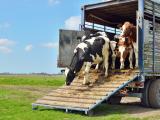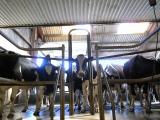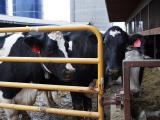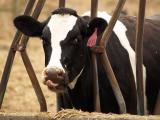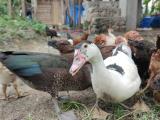Jul 11, 2005 (CIDRAP News) – Avian influenza has surfaced in poultry flocks in Thailand for the first time in 3 months, according to reports from the country.
The disease has broken out among birds at five locations in Suphan Buri province, about 60 miles north of Bangkok, according to several news services. The Associated Press reported that the disease was found in 10 fighting cocks in five villages where outbreaks occurred in 2004.
The last poultry outbreaks of avian flu in Thailand were reported to the World Organization for Animal Health (OIE) in mid-April. Thailand has had no reported human cases of H5N1 flu since October 2004.
News reports today did not say whether laboratory tests have identified the H5N1 strain in the new outbreaks, but they strongly implied that the outbreaks involved that strain.
The Bangkok newspaper The Nation quoted Nirandorn Uangtrakoolsuk, a Livestock Department official, as saying that officials have destroyed more than 450 birds and banned the movement of poultry in the area of the outbreak.
Nirandorn also said authorities were running laboratory tests to determine if recent "mass deaths of fowl" in six other provinces were related to avian flu, the report said. The provinces were Pathum Thani, Chachoengsao, Prachin Buri, Kalasin, Lampang, and Phetchabun.
The new outbreaks forestalled Thai authorities' plan to declare the country free of avian flu tomorrow, according to the Nation and the Bangkok Post. Jul 12 would have marked the passage of 90 days since the last recorded case, in Lop Buri province in April.
The Post story said Thailand, a major poultry exporter, cannot resume exporting fresh poultry until the OIE certifies that the country has been free of outbreaks for at least 90 days.
The latest outbreaks occurred at "small, native chicken farms," not at farms raising poultry for export, said Anan Sirimongkolkasem, president of the Thai Broiler Processing Exporters Association, as quoted by the Post.
Nirandorn said the new outbreaks were small and unlikely to evolve into a serious crisis, according to the Nation. He called on farmers to immediately notify officials of any mass deaths of poultry.
The head of the Livestock Department, Yukol Limlaemthong, said infected birds are living longer because of increasing immunity to the virus, making it less likely that unusual deaths will alert farmers to outbreaks, according to a Reuters report.
The Post reported that about 11,000 Thai poultry farms and 1,700 layer farms have met government biosecurity standards that include strict safeguards against outside contamination. But small farms still pose a concern because most operate as open-air facilities that can easily be contaminated from the outside, the newspaper said.
Seventeen human cases of H5N1 infection, 12 of them fatal, occurred in Thailand in 2004. Overall, the virus has infected at least 108 people and killed 54 in Vietnam, Thailand, and Cambodia since late 2003, according to the World Health Organization's count. Unofficial counts put the death toll at 55.
In other developments, Japanese authorities said they discovered the seventh outbreak of avian flu in less than a month in an area about 60 miles north of Tokyo, according to an Agence France-Presse (AFP) report today.
Previous outbreaks were identified as H5N2, a milder strain than H5N1, the report said. A local official said the latest outbreak involved an H5 virus, and tests to identify it further were under way.
Authorities in Ibaraki prefecture said they would cull 8,550 birds at the infected farm, AFP reported. About 150,000 chickens at six other farms in the area have been destroyed to stop the disease, the story said. Officials had checked 11 other farms and found no cases.
